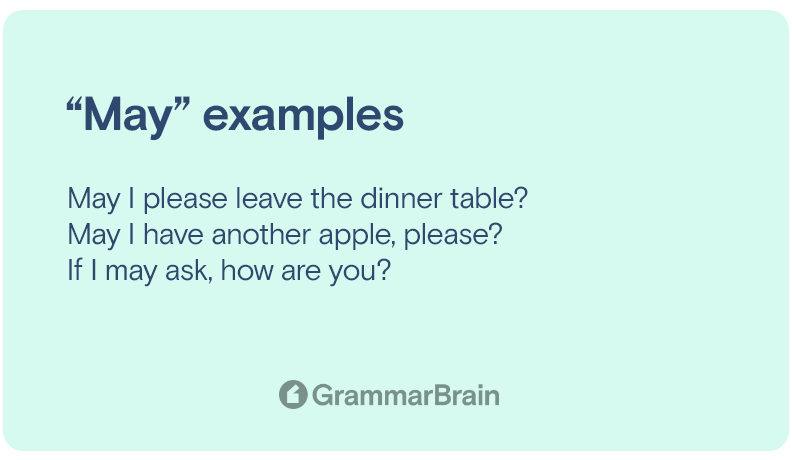Can Vs May By Shmoop

Video Analysis From Shmoop When it comes to verbs, may is quite the troublemaker. so how do you know if you should use may or if you should use can? you use the verb can when you are asking if something is possible. you use the verb may to ask if something is permissible. your teacher doesn't know if you can go to the bathroom. Today, i want to highlight the differences between can and may. i will outline the traditional rule regarding can vs. may, provide you with example sentences for each, and offer some advice going forward in your writing.

Video Analysis From Shmoop You ask, "can i go to the bathroom?" your teacher or parent replies, "i don't know. can you?" sound familiar? thought so. avoid the snarkiness by learning when "may" is actually the verb you. The difference between can and may lies in their usage: can denotes ability or capacity and is commonly used in informal permissions, while may implies formal permission or a less certain possibility. Grammatically, it is considered completely acceptable to use can and may interchangeably in the context of permission. however, the word can is often seen as being less formal or polite than using the word may in this context. this distinction is most commonly applied to spoken english. We’ll break down everything you need to know about ‘can’ vs. ‘may’. you’ll learn how to use them correctly, explore their grammatical structures, see real life usage examples, and even practice with a quiz.

Can Vs May 02 Grammatically, it is considered completely acceptable to use can and may interchangeably in the context of permission. however, the word can is often seen as being less formal or polite than using the word may in this context. this distinction is most commonly applied to spoken english. We’ll break down everything you need to know about ‘can’ vs. ‘may’. you’ll learn how to use them correctly, explore their grammatical structures, see real life usage examples, and even practice with a quiz. In this situation, ‘may’ vs ‘can’ become points of debate, as they each carry slightly different connotations. we’ll unpack this and more as we learn the nuances of these two essential modal verbs. In the 1800s, using the word “can” to ask for permission was considered standard english. but in the century that followed, something happened. grammar fussbudgets got it in their heads that “can” should refer to ability and “may” should refer to permission. Can vs. may although, traditionally, can has meant "to be able" and may has meant "to be permitted" or to express possibility, both can and may are commonly used interchangeably (especially in spoken, informal language) in respect to permission. even the oxford english dictionary informs us that the permission use of can is not incorrect, but it's better and more polite to use may in formal. In this blog post, you will learn how to use the words “can” and “may” in simple english. these words help us ask for permission or talk about ability. knowing the difference between them makes your speaking and writing more polite and correct.

Can Vs May 03 In this situation, ‘may’ vs ‘can’ become points of debate, as they each carry slightly different connotations. we’ll unpack this and more as we learn the nuances of these two essential modal verbs. In the 1800s, using the word “can” to ask for permission was considered standard english. but in the century that followed, something happened. grammar fussbudgets got it in their heads that “can” should refer to ability and “may” should refer to permission. Can vs. may although, traditionally, can has meant "to be able" and may has meant "to be permitted" or to express possibility, both can and may are commonly used interchangeably (especially in spoken, informal language) in respect to permission. even the oxford english dictionary informs us that the permission use of can is not incorrect, but it's better and more polite to use may in formal. In this blog post, you will learn how to use the words “can” and “may” in simple english. these words help us ask for permission or talk about ability. knowing the difference between them makes your speaking and writing more polite and correct.

Understanding May Vs Can English Grammar Examples Grammarbrain Can vs. may although, traditionally, can has meant "to be able" and may has meant "to be permitted" or to express possibility, both can and may are commonly used interchangeably (especially in spoken, informal language) in respect to permission. even the oxford english dictionary informs us that the permission use of can is not incorrect, but it's better and more polite to use may in formal. In this blog post, you will learn how to use the words “can” and “may” in simple english. these words help us ask for permission or talk about ability. knowing the difference between them makes your speaking and writing more polite and correct.

Understanding May Vs Can English Grammar Examples Grammarbrain
Comments are closed.